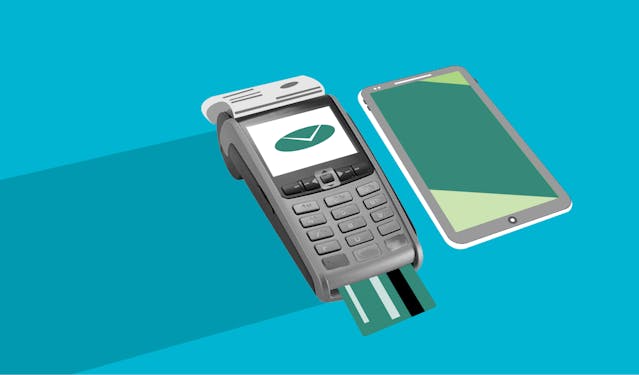Physical retail may well be the traditional retail option, but that doesn’t mean you don’t have to worry about keeping up with modern tech. If you want to compete with established high street brands, you need to offer the same level of convenience – which means investing in some of the same gadgets and software. Other forms of tech can meanwhile benefit you by reducing admin and deterring thieves. Below are just a few examples of the necessary tech that every modern physical store needs.
POS systems
The cash register has come a long way since its 19th century origins. Over the new years, many new features have been added to cash registers to improve the sales process from barcode scanners to integrated sales reports.
Nowadays, the best POS systems typically consist of a touchscreen that in some cases takes the form of a portable tablet – allowing sales assistants to serve customers from anywhere in a store. The day’s transaction data is stored on the cloud and can be accessed live, while also providing the option to remove products and alter pricing in real time. These modern POS systems can also be linked with various forms of software such as accounting software, employee management software and stock keeping software.
The most modern solution is the self-service checkout, which allows customers to handle the checkout process themselves. While a member of staff will still need to be on hand, self-service checkouts can greatly reduce the amount of sales assistants needed on the floor at one time.
There are many POS system providers to choose from and many different styles of POS system. This post at TechRadar.com offers a comprehensive guide to choosing the right one.
Card readers
Fewer customers nowadays pay by cash. In fact, some customers only use a credit card. Every store therefore needs a card processing terminal in order to serve customers paying by card.
This is typically linked up to a POS system. While the first card readers were fixed and required all users to enter a pin, modern card readers can be made wireless and portable for use all around a store and are able to take contactless and mobile payments.
It’s worth setting up a card reader that can accept debit cards and credit cards. Taking credit card payments involves setting up a merchant account with an approved card processing company. Different companies will offer different merchant fees and card processing options, so it’s worth shopping around.
Many retailers choose to work with long running card processing companies like North American Bancard. Go to their website and you can explore the different options available (it’s worth noting that North American Bancard is now North.com). You’ll find that some card processing companies have more experience with retail than others.
Security alarms/cameras
Keeping your store secure against thieves could require investing in some security technology. A burglar alarm can be fitted to your door, so that when you lock up, any person that tries to break in will trigger the alarm. Alarms can also be set up by the front door to detect theft of products that haven’t been scanned – allowing you to catch shoplifters that may strike while the store is open.
Security cameras can meanwhile be set up to record video evidence of any criminal behavior. This could include burglars, vandals, shoplifters and even employee theft. Smart cameras can be accessed from an app on your phone and can even be linked up to burglar alarm systems – so that when the alarm sounds, you are sent an alert on your phone and the option to view your cameras in real time.
Accounting software
Accounting software is necessary for automating the bookkeeping process. As already mentioned, modern POS systems can link up with accounting software, automatically recording sales and calculating the tax you owe in real time. This saves huge amounts of hours spent pouring over sales reports.
There are many retail accounting software options that you can choose from. Other software solutions are also worth looking into such as stock keeping software and employee management software.
Online store
Most physical stores nowadays also have an online version. Having a website is essential for marketing your business, but allowing customers to also buy through this website can help to increase sales. Some of today’s customers simply do not shop at physical stores, and having an online version of your store ensures that you don’t miss out on these customers.
There are many platforms like Shopify that you can use to set up an online store. You can find many guides online to setting up an online store.
